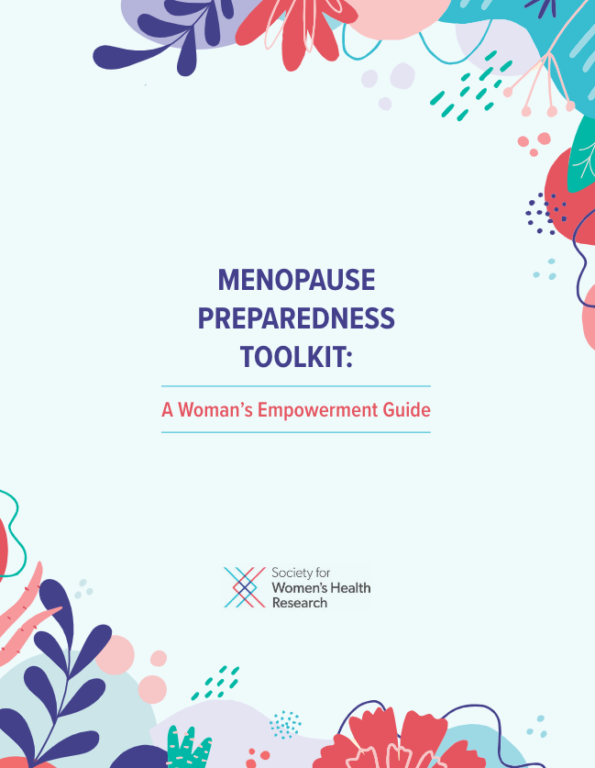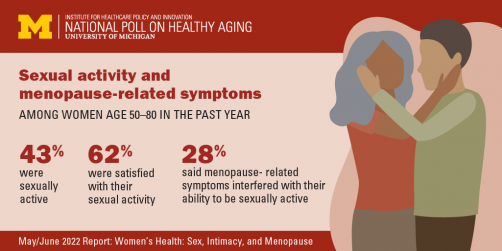“Sexual difficulties can be life-long or recently acquired,
but they are a common presentation at the menopause.
They may also be situational (limited to certain types of…”.1
Umbrella
What may the Sexual Health and Menopause Umbrella include?
Depending on the Source (DotS) this Umbrella may include:
- Menopause and Sexual Health
- Sexual Health and Menopause
- Sexual Well-Being and Menopause
Menopause, Aging, Other Factors
Is there an association between menopause, aging, other factors and sexual health?
In Sexual Health & Menopause Online: Changes At Midlife the Menopause Society [formerly the North American Menopause Society] elaborate on:
 “Every woman experiences her midlife years differently. The changes that occur during this period, including changes in sexual well-being, are typically caused by a mix of both menopause and aging, as well as by typical midlife stresses and demands”.2
“Every woman experiences her midlife years differently. The changes that occur during this period, including changes in sexual well-being, are typically caused by a mix of both menopause and aging, as well as by typical midlife stresses and demands”.2
In Looking After Yourself: Sex and Relationships – What Can Affect Your Sex Life? Stage of Life the (Australian) Jean Hailes for Women’s Health (JH) explain:
You may also feel differently about your body at this age and may not want to be intimate with your partner as often as you used to”.3
In Looking After Yourself: Sex and Relationships – What Can Affect Your Sex Life? Menopausal Symptoms the JH also note:
“It’s common for different menopausal symptoms to affect sexual desire. For example, hot flushes, moodiness, sleeplessness and fatigue”.4
Sexual Difficulties
Is there an association between sexual difficulties and menopause?
In Sexual Difficulties In the Menopause the Australasian Menopause Society note:
“Sexual difficulties can be life-long or recently acquired, but they are a common presentation at the menopause. They may also be situational (limited to certain types of stimulation, situations, or partners) or generalized”.5
Sexual Disorders
What is it important to note about sexual disorders and menopause?
In Sexual Health & Menopause Online: Sexual Health Problems At Midlife the Menopause Society note:
“The question of being troubled is key when it comes to any potential sexual disorder, since the issue is not the sexual “problem” or condition itself but whether it is bothersome or troubling to the person or partners involved. For instance, if both partners in a couple are content to live without an active sex life, then a condition such as vaginal dryness or erectile difficulty does not really represent sexual dysfunction. Similarly, a woman who notices some decline in sexual desire over time may not be troubled by it if she is not in a relationship. However, if she meets a partner with high libido, she may start to see her low sex drive as a problem”.6
Sexual Activity
Is there an association between sexual activity and menopause?
In Sexual Health & Menopause Online: Changes In the Vagina and Vulva – Vulvovaginal Atrophy the Menopause Society explain:
“When a woman doesn’t have intercourse or other vaginal sexual activity on a regular basis following menopause, her vagina may also become shorter and narrower. Then, when she does try to have intercourse, she is likely to experience pain, even if she uses a lubricant. That’s because dry, fragile vulvovaginal tissues are susceptible to injury, tearing, and bleeding during intercourse or any penetration of the vagina. The resulting discomfort can be so great that the woman avoids intercourse and the condition worsens. Sometimes, even women who are not sexually active are bothered by vaginal dryness and the irritation that may accompany it”.7
How may regular sexual activity help?
According to the Menopause Society:
“Continuing to have regular vaginal sexual activity through menopause helps keep the vaginal tissues thick and moist and maintains the vagina’s length and width. This helps keep sexual activity pleasurable”.8
Over-the-Counter Treatment Options
What are some over-the-counter treatment options for vaginal dryness?
In Vaginal Atrophy: Diagnosis & Treatment – Treatment the (United States) Mayo Clinic elaborate on:
- “Vaginal moisturizers. Try a vaginal moisturizer (K-Y Liquibeads, Replens, Sliquid, others) to restore some moisture to your vaginal area. You may have to apply the moisturizer every few days. The effects of a moisturizer generally last a bit longer than those of a lubricant
- Water-based lubricants. These lubricants (Astroglide, K-Y Jelly, Sliquid, others) are applied just before sexual activity and can reduce discomfort during intercourse. Choose products that don’t contain glycerin or warming properties because women who are sensitive to these substances may experience irritation. Avoid petroleum jelly or other petroleum-based products for lubrication if you’re also using condoms, because petroleum can break down latex condoms on contact”.9
Hormone Therapy
Is hormone therapy a suitable treatment for vaginal dryness?
On page three in the Joint Position Statement By the British Menopause Society, Royal College of Obstetricians and Gynaecologists and Society for Endocrinology on Best Practice Recommendations for the Care of Women Experiencing the Menopause, first published online 10 June 2022, one of the recommendations is:
- “Low-dose and ultra-low dose vaginal oestrogen preparations can be taken by perimenopausal and menopausal women experiencing genitourinary symptoms and continued for as long as required. All vaginal oestrogen preparations have been shown to be effective in this context and there is no requirement to combine vaginal oestrogens with systemic progestogen treatment for endometrial protection, as low-dose and ultra-low dose vaginal oestrogen preparations do not result in significant systemic absorption or endometrial hyperplasia”.10
Testosterone Therapy
Is testosterone therapy a suitable treatment for low libido?
In Looking After Yourself: Sex and Relationships – Managing Low Libido: Testosterone Therapy the JH elaborate on:
“The area of wellbeing and libido is very complex, and research tells us these are likely to be influenced by psychological factors more than testosterone. But testosterone therapy may be a suitable treatment for postmenopausal women who feel distressed by their loss of sexual desire. This condition is known as hypoactive sexual desire disorder (HSDD)”.11
Is there a video/podcast about Testosterone Therapy for Postmenopausal Women?
Your Country may have a video/podcast similar to the British Menopause Society’s (BMS) BMS TV: Testosterone Explained or the JH’s Libido and Testosterone Therapy – Podcast.
Partners
What can partners be mindful of about sexual health and menopause?
In Information for Partners: Sex and Menopause the JH elaborate on:
“It’s common for women to have lower sex drive (libido) during menopause. This could be due to many things, including changing hormone levels, vaginal atrophy, vaginal dryness (which can cause discomfort during sex) and lowered mood and fatigue”.12
Where may partners may find more information about sexual health and menopause?
Partners may find more information about sexual health and menopause in Information for Partners: Sex and Menopause.
Health Care Provider
What if I would like help with my sexual health and menopause?
If you would like help with your sexual health and menopause, it may be in your best interest to choose to talk to your health care provider about this.
In How Sex Changes After Menopause: Don’t Give Up on Sex During Menopause the (United States) Cleveland Clinic encourages us to seek help, elaborating on:
“If nothing seems to help and you’re bothered by your sexual (dys)function, talk to your doctor — and try not to feel embarrassed. These are common concerns, and your healthcare providers are there to help”.13
Health Topics A-Z
Where may I find Health Topics A-Z related to Sexual Health and Menopause?
In Health Topics A-Z you may find:
Links
Where may I find Links related to Sexual Health and Menopause?
Your Country may have Links similar to:
Links
This Links List to third party websites is neither comprehensive nor exhaustive. Inclusion on this Links List does not imply endorsement or recommendation. Non-inclusion on this Links List does not imply non-endorsement or non-recommendation. Third party websites are not under the control of Meno Martha International Menopause Directory. Third party websites may contain explicit medical images and/or sexual references. Please read Meno Martha International Menopause Directory’s Links Policy before proceeding to a Link. Please contact Webmaster if you experience a problem with a Link.New or Updated
- Expert Tips To Boost Your Libido
- How Menopause Affects Sexuality
- Mayo Clinic Minute: Menopause and Sexual Health [+ Video Courtesy: Mayo Clinic News Network]
- Vaginal Oestrogen Is A Treatment on the Rise, But Is It Safe? [14 February 2024]
- Vaginal and Vulval Pain: Know the Different Causes and When To Seek Help [18 January 2024]
- Video Series-2024: Preparing for Your Menopause Health Care Visit [13 January 2024]
- Vulval Self-Checks: How To Get To Know Your Vulva and Why You Should [17 January 2024]
- 11 Ways To Help Yourself To A Better Sex Life
- 9 Tips To Keep Your Vagina and Vulva Healthy
- ACOG Explains: Managing Menopause Symptoms [American College of Obstetricians and Gynecologists]
- Advancing Menopause Care In Australia: Barriers and Opportunities – The Role of Testosterone Treatment
- Askearlymenopause.org [Ask EM] [+ Video: What Is Early Menopause?]
- BMS Statement on Testosterone
- BMS TV: Testosterone Explained
- Birth Control Options: Things To Consider
- Caredownthere.com.au
- Consumer Health: Treating Vaginal Dryness After Menopause
- Contraception and the Menopause
- Could Chamomile Vaginal Gel Improve the Sexual Function of Postmenopausal Women
- Deciding About Hormone Therapy Use
- Expert Tips To Boost Your Libido
- FAQs: Disorders of the Vulva: Common Causes of Vulvar Pain, Burning, and Itching
- FAQs: Vaginal Rejuvenation, Labiaplasty, and Other Female Genital Cosmetic Surgery
- FAQs: When Sex Is Painful
- Find A Menopause Practitioner [United States and Other]
- Find An AMS Doctor [Australasian Menopause Society i.e. Australia and New Zealand]
- Find Your Nearest BMS Menopause Specialist [British Menopause Society]
- Hormonal Health – Clues Made Clear
- How Do I Deal With Vaginal Atrophy? — Ask Dr Jean
- How Menopause Affects Sexuality
- How Sex Changes After Menopause
- Information for Partners
- International Society for Sexual Medicine: Sexual Health Topics
- International Society for the Study of Vulvovaginal Diseases: Patient Handouts
- International Society for the Study of Women’s Sexual Health: Find A Provider
- Joint Position Statement By the British Menopause Society, Royal College of Obstetricians and Gynaecologists and Society for Endocrinology on Best Practice Recommendations for the Care of Women Experiencing the Menopause
- Laser Treatment for Genitourinary Syndrome of Menopause (Scientific Impact Paper No. 72)
- Later Years (Around 50 Years and Over): Menopause and Post Menopause Health – Sexual Wellbeing, Intimacy and Menopause [+ Video: Menopause Is the End of Your Sex Life]
- Later Years (Around 50 Years and Over): Menopause and Post Menopause Health – Supporting Someone Through the Menopause [+ Video: Men Don’t Need To Know About Menopause]
- Let’s Talk About Perimenopause
- Libido
- Lubricant Alternatives: What To Use and What To Avoid
- Looking After Yourself
- Looking After Yourself: Sex and Relationships
- Low Sex Drive In Women
- Many Older Women Have Active Sex Lives, But Menopause Can Interfere
- Mayo Clinic Minute: Menopause and Sexual Health [+ Video]
- Mayo Clinic Q and A: Managing Vaginal Dryness
- Menopause Map: Downloadable Resources – My Personal Path Print Tools: Questions for Your Health Care Provider

- Menopause Patient Information: 2. Talking To Your GP About Menopause
- Menopause Preparedness Toolkit Video Series: Common Conditions Associated With Menopause and Midlife
 Menopause Preparedness Toolkit: A Woman’s Empowerment Guide
Menopause Preparedness Toolkit: A Woman’s Empowerment Guide- Mayo Clinic Q and A: Perimenopause Transitions and Concerns
- Menopause Ruining Your Sex Life?
- Menopause Symptoms: Mayo Clinic Expert Outlines Hormone and Nonhormonal Therapies
- Menopause Treatments: What Works, What Doesn’t
- Mymenoplan.org [My Menoplan, United States]
- Navigating Menopause Together: How Partners Can Help
- Navigating Menopause: Expert Insights and Solutions | Dr Susan Davis | The Proof Podcast EP 245
- Non-Estrogen Treatments for Menopausal Symptoms
- Nonhormone Treatments for Hot Flashes and Night Sweats
- Patty Brisben Foundation for Women’s Sexual Health: Guide To Sexual Health Providers
- Perimenopause and Menopause Symptom Checklist

- Perimenopausal and Postmenopausal Bleeding
- Poll Shows Impact of Menopause and Other Health Issues on Older Women’s Sex Lives

- Position Statement for Management of Genitourinary Syndrome of the Menopause (GSM)
- Prosayla Supported By ISSWSH [International Society for the Study of Women’s Sexual Health]
- Safer Sex & STIs
- Sex & Intimacy After Cancer
- Sex and Sexual Health
- Sex and the Adult Female With Cancer [Topics]
- Sexual Difficulties In the Menopause
- Sexual Health
- Sexual Health for Lesbian and Bisexual Women
- Sexual Health: Expert Answers – Is There An Equivalent of Viagra for Women?
- Sexual Problems and Menopause
- Sexually Transmitted Infections, All You Need To Know – Podcast
- Supporting A Loved One Through Menopause
- Testosterone and the Menopause
- Testosterone for Women
- The Sexual Health of Female Partners of Prostate Cancer Survivors
- The Truth About Menopause Supplements | Dr Sarah Berry
- Therapy for the Effects of Menopause
- Tips To Help Manage Menopause Symptoms
- Urogenital Problems
- Using Natural Therapies In the Menopause Transition – Webinar
- Vaginal Atrophy
- Vaginal Dryness
- Vaginal Dryness After Menopause: How To Treat It? I’m postmenopausal and often have vaginal dryness, which makes intercourse painful. Is there anything I can do about it?
- Vaginal Dryness Alternative Treatments
- Vaginal Dryness: What To Do About It
- Vaginal Laser Therapy for GSM/VVA: Where We Stand Now – A Review By the EUGA Working Group on Laser
- Vaginal Oestrogen Is A Treatment on the Rise, But Is It Safe?
- Vaginal and Vulval Pain: Know the Different Causes and When To Seek Help
- Video Series-2022: Discussing Sexual Health Concerns With Your Health Care Professional
- Video Series-2022: Perimenopause, Signs, Symptoms, and Solutions
- Video Series-2023: Changes In Sexual Health After Cancer
- Video Series-2023: NAMS 2023 Nonhormone Therapies Position Statement for Bothersome Menopause Symptoms
- Video Series-2023: New FDA-Approved Nonhormone Option for the Treatment of Hot Flashes
- Video Series-2024: Preparing for Your Menopause Health Care Visit
- Videos and Podcasts: Videos – Interviews: A Simple Approach To Menopause: The Menopause Quick Six (www.MQ6.ca)
- Vulval Self-Checks: How To Get To Know Your Vulva and Why You Should
- Webinars: Previous – Sexual Health Issues In Menopause
- Webinars: Previous – Pay Attention on Your Way In! The Vulva Is An Important Organ Too
- “We’re Just Tired”: Influences on Sexual Activity Among Male-Partnered Women In Midlife; A Mixed Method Study
- Why Didn’t Anyone Tell Me This? Episode 3: Dr Annice Mukherjee: Your Essential Menopause Toolkit
- Women’s Sexual Health: Talking About Your Sexual Needs
- World Sexual Health Day

Sources
Where may I find the Sources quoted?
You may find the Sources quoted at:
Sources
- Sexual Difficulties In the Menopause. Content Created March 2021. Australasian Menopause Society https://www.menopause.org.au/hp/information-sheets/722-sexual-difficulties-in-the-menopause Accessed: 19 March 2024
- Sexual Health & Menopause Online: Changes At Midlife. Menopause Society https://www.menopause.org/for-women/sexual-health-menopause-online/changes-at-midlife Accessed: 19 March 2024
- Looking After Yourself: Sex and Relationships – Stage of Life. Menopausal Symptoms. Last Updated: 09 January 2024 | Last Reviewed: 19 August 2022. Jean Hailes for Women’s Health https://jeanhailes.org.au/health-a-z/menopause/sex Accessed: 19 March 2024
- Looking After Yourself: Sex and Relationships – What Can Affect Your Sex Life? Menopausal Symptoms. Last Updated: 09 January 2024 | Last Reviewed: 19 August 2022. Jean Hailes for Women’s Health https://jeanhailes.org.au/health-a-z/menopause/sex Accessed: 19 March 2024
- Sexual Difficulties In the Menopause. Content Created March 2021. Australasian Menopause Society https://www.menopause.org.au/hp/information-sheets/722-sexual-difficulties-in-the-menopause Accessed: 19 March 2024
- Sexual Health & Menopause Online: Sexual Problems At Midlife. Menopause Society https://www.menopause.org/for-women/sexual-health-menopause-online/sexual-problems-at-midlife Accessed: 19 March 2024
- Sexual Health & Menopause Online: Changes In the Vagina and Vulva – Vulvovaginal Atrophy. Menopause Society https://www.menopause.org/for-women/sexual-health-menopause-online/changes-at-midlife/changes-in-the-vagina-and-vulva Accessed: 19 March 2024
- Sexual Health & Menopause Online: Changes In the Vagina and Vulva: Vulvovaginal Atrophy. Menopause Society https://www.menopause.org/for-women/sexual-health-menopause-online/changes-at-midlife/changes-in-the-vagina-and-vulva Accessed: 19 March 2024
- Vaginal Atrophy: Diagnosis & Treatment – Treatment. 17 September 2021. Mayo Clinic https://www.mayoclinic.org/diseases-conditions/vaginal-atrophy/diagnosis-treatment/drc-20352294 Accessed: 19 March 2024
- Hamoda, H, Mukherjee, A, Morris, E, Baldeweg, S. E., Jayasena, C. N., Briggs, P, Moger, S. Joint Position Statement By the British Menopause Society, Royal College of Obstetricians and Gynaecologists and Society for Endocrinology on Best Practice Recommendations for the Care of Women Experiencing the Menopause. First Published Online 10 June 2022:3-4. https://journals.sagepub.com/doi/full/10.1177/20533691221104879 Accessed: 19 March 2024
- Looking After Yourself: Sex and Relationships – Managing Low Libido: Testosterone Therapy. Last Updated: 09 January 2024 | Last Reviewed: 19 August 2022. Jean Hailes for Women’s Health https://jeanhailes.org.au/health-a-z/menopause/sex Accessed: 19 March 2024
- Information for Partners: Sex and Menopause. Last Updated: 07 December 2023 | Last Reviewed: 19 August 2022. Jean Hailes for Women’s Health https://www.jeanhailes.org.au/health-a-z/menopause/information-for-partners Accessed: 19 March 2024
- How Sex Changes After Menopause: Don’t Give Up on Sex During Menopause. 16 May 2022. Cleveland Clinic https://health.clevelandclinic.org/sex-and-menopause/ Accessed: 19 March 2024



